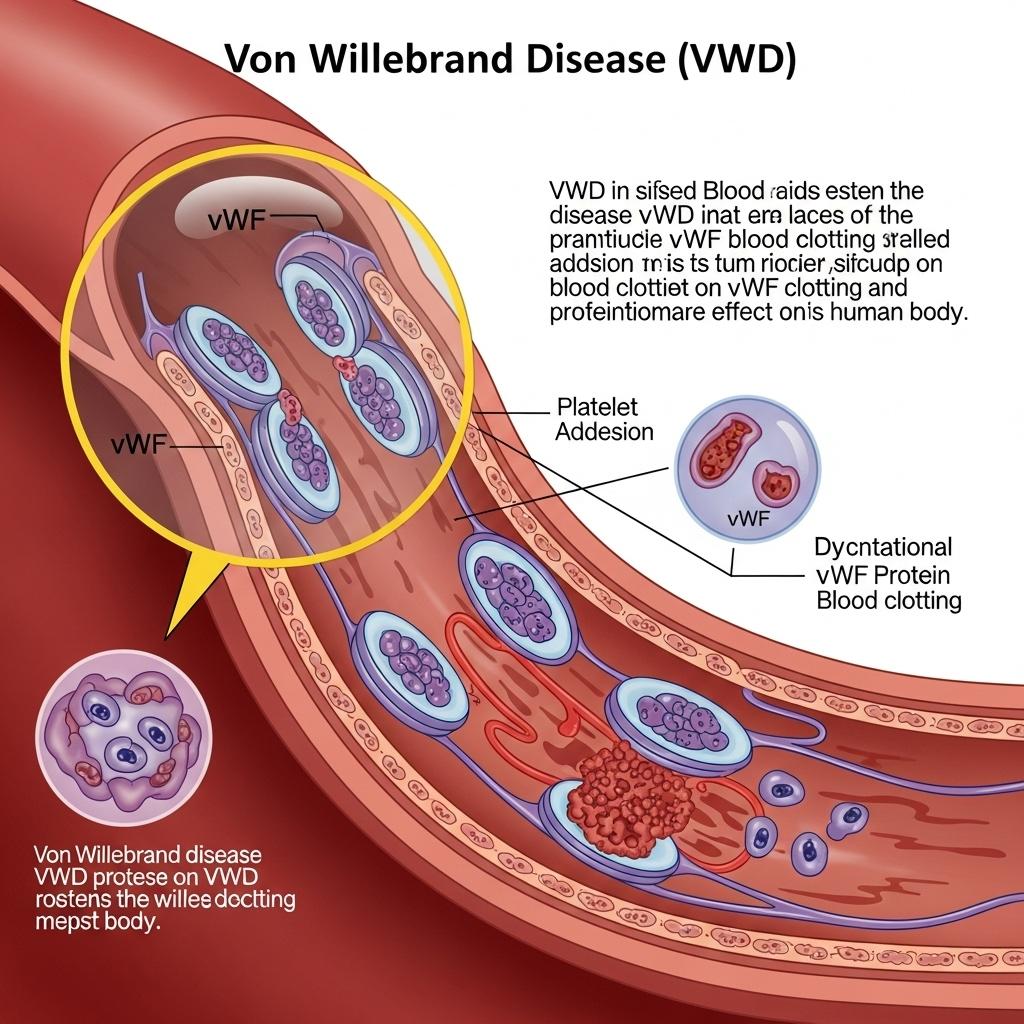Von Willebrand Disease: Advancing Hemostatic Precision in the Most Cpradermmon Inherited Bleeding Disorder

Von Willebrand Disease (VWD) is the most common inherited bleeding disorder, resulting from a deficiency or dysfunction of the von Willebrand factor (VWF), a protein essential for platelet adhesion and clot stabilization. Affecting up to 1% of the global population, VWD manifests as mucocutaneous bleeding, menorrhagia, prolonged bleeding after surgery, or excessive bruising, often mistaken for other conditions or overlooked entirely.
Request a sample copy of the CI report at:
https://www.datamintelligence.com/strategic-insights/ci/von-willebrand-disease-vwd
Understanding the Pathophysiology
VWF plays two major roles in hemostasis:
* Mediating platelet adhesion to injured blood vessels
* Carrying and stabilizing Factor VIII, a key coagulation protein
VWD is classified into three types:
Type 1 (mild deficiency) – most common (~75%)
Type 2 (qualitative defects) – multiple subtypes (2A, 2B, 2M, 2N)
Type 3 (complete deficiency) – rare, severe form
Clinical Manifestations and Diagnosis
Symptoms vary widely in severity.
Common signs include:
* Frequent nosebleeds
* Heavy or prolonged menstrual bleeding
* Easy bruising
* Bleeding gums
* Post-surgical or post-traumatic bleeding
* Diagnosis involves a combination of tests:
* VWF antigen
* VWF activity assays (ristocetin cofactor)
* Factor VIII levels
* Multimer ***ysis (for Type 2 subtypes)
Due to its variable presentation, VWD is underdiagnosed, particularly in women with unexplained heavy menstrual bleeding.
Standard Treatment Approaches
Treatment depends on VWD type, severity, and bleeding risk:
* Desmopressin (DDAVP)
Stimulates the release of stored VWF and Factor VIII
* Effective in Type 1 and some Type 2 cases
VWF-Containing Factor Concentrates
* Recombinant or plasma-derived VWF products
Essential for Type 3 or severe bleeding episodes
* Antifibrinolytics (e.g., tranexamic acid)
Useful in dental procedures or mucosal bleeding
* Hormonal Therapy
For managing menorrhagia in women with VWD
Perioperative planning is critical, involving tailored factor replacement and monitoring.
Evolving Therapies and Individualized Care
New recombinant VWF formulations offer pathogen-free alternatives and improved pharmacokinetics. Dual-factor concentrates (VWF + FVIII) are also being optimized for reduced infusion frequency. Clinical trials are evaluating extended half-life products for better prophylaxis and adherence.
Genetic profiling may further refine diagnosis and predict therapeutic response, particularly in complex subtypes like Type 2N, often misdiagnosed as mild hemophilia A.
Special Considerations in Women and Children
Women with VWD face distinct challenges:
* Menorrhagia affects up to 80%
* Pregnancy requires coordinated obstetric and hematologic care
* Postpartum hemorrhage risk is elevated
* In children, spontaneous bruising and nosebleeds may be early signs. Pediatric-specific diagnostic thresholds and bleeding scores help distinguish VWD from physiologic bleeding.
Public Health Challenges and Education
Despite being common, VWD is often missed or misclassified.
Barriers include:
* Limited awareness among primary care providers
* Misattribution of symptoms to menstruation or surgery
* Lack of access to specialized coagulation labs in some regions
* Educational campaigns, bleeding assessment tools, and improved access to diagnostics are key to narrowing the diagnosis gap.
Request a CI consultation at:
https://www.datamintelligence.com/strategic-insights/ci/von-willebrand-disease-vwd
Future Directions
The future of VWD care lies in precision hematology using personalized diagnostics, bleeding scores, and factor pharmacodynamics to guide therapy.
Goals include:
* Earlier diagnosis
* Home-based management options
* Safer, longer-acting treatments
* Integration into newborn screening for severe types
About DataM Intelligence
DataM Intelligence 4Market Research LLP delivers real-time competitive intelligence across autoimmune, hematologic, and rare disease landscapes. Our insights empower life sciences stakeholders with data on clinical pipelines, regulatory shifts, and market access dynamics.
🔗 Visit: www.datamintelligence.com
- Art
- Causes
- Crafts
- Dance
- Drinks
- Film
- Fitness
- Food
- משחקים
- Gardening
- Health
- בית
- Literature
- Music
- Networking
- לא משנה
- Party
- Religion
- Shopping
- Sports
- Theater
- Wellness


